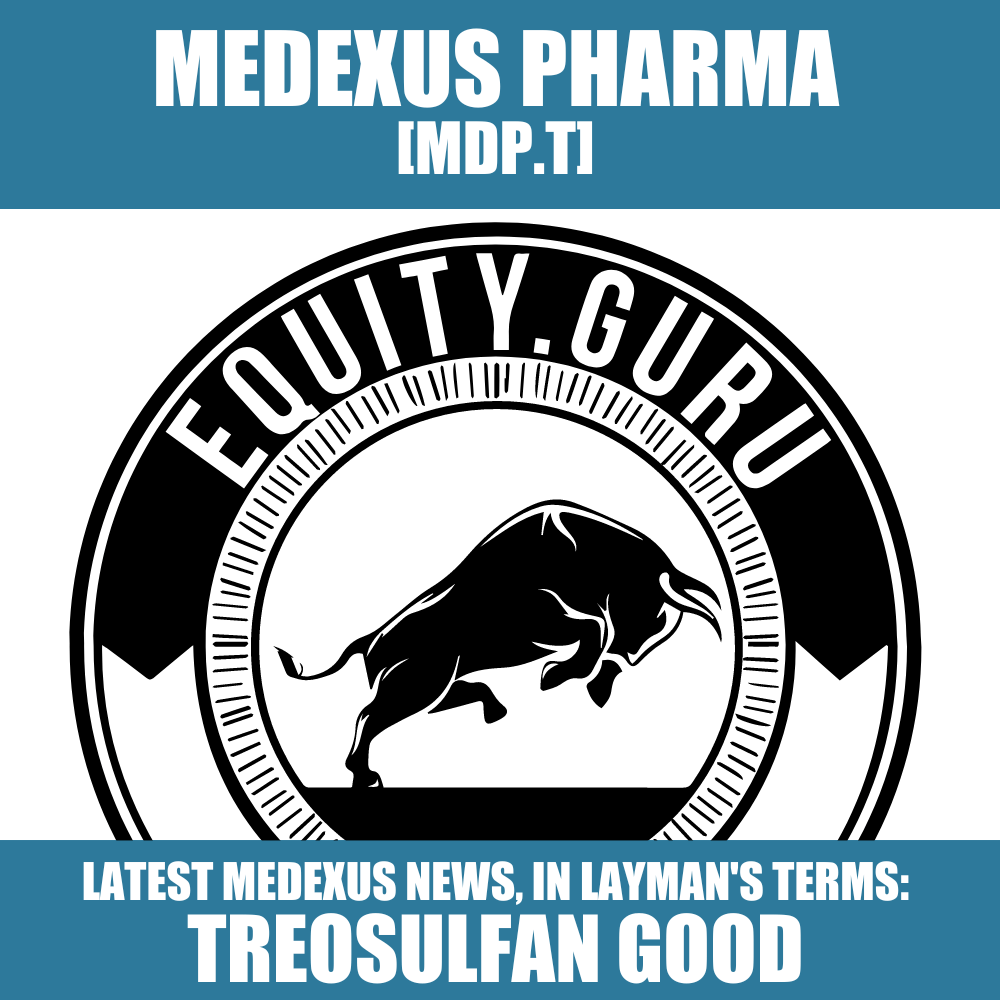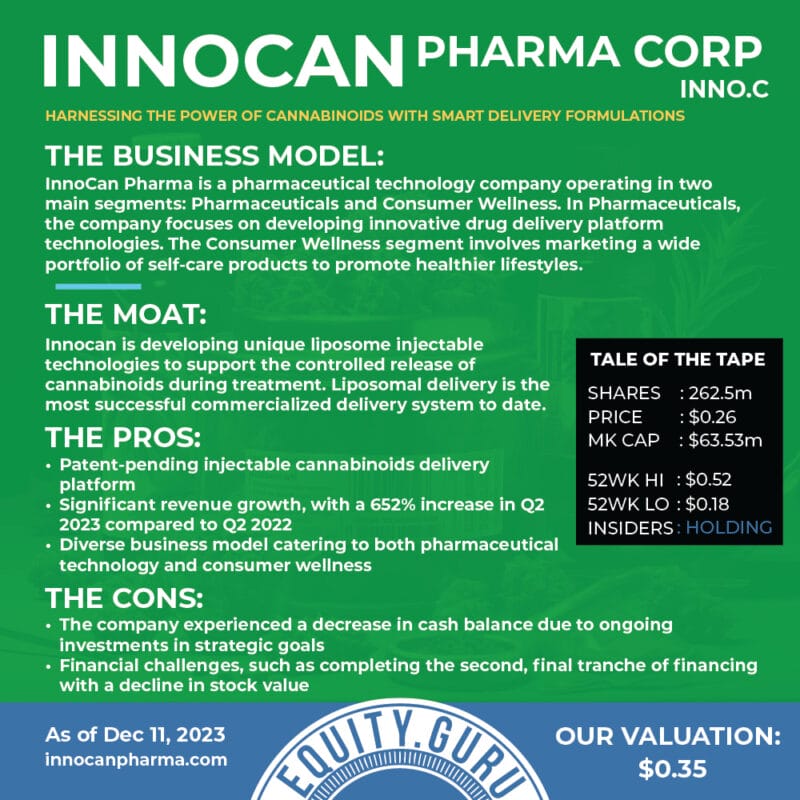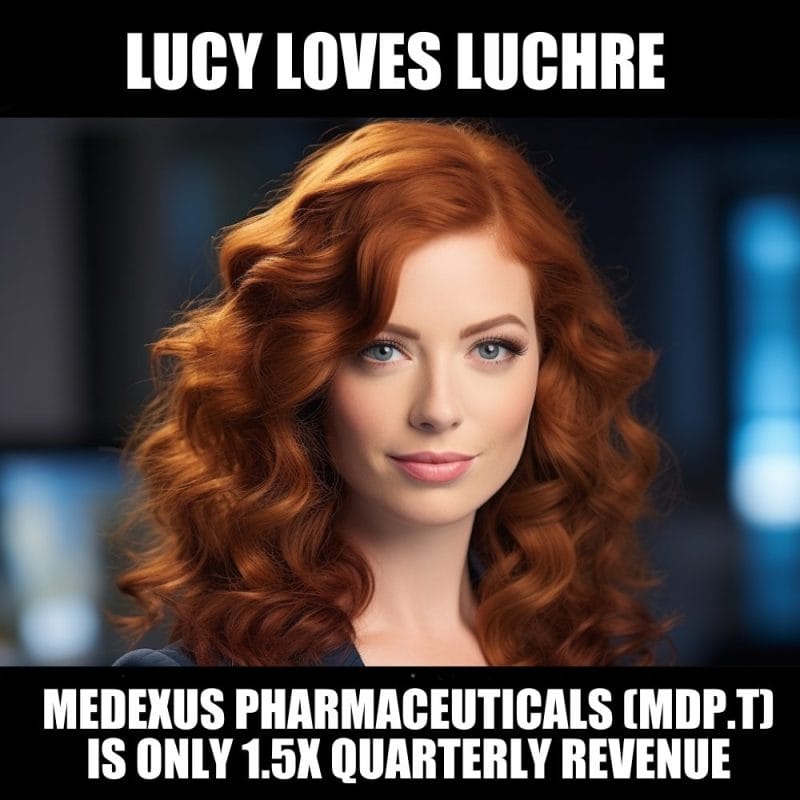Medexus Pharmaceuticals (MDP.T) has a boatload of pharma IP in the guise of numerous drug treatments that bring in excess of US$100m per year in revenues, which we like a lot on a US$17m market cap.
But quite often retail investors look at pharma news and, if it doesn’t contain the words ‘is now approved by the FDA’, their eyes cross in confusion.
So today, when Medexus released news about their Treosulfan drug and that it’s been shown to be useful in saving lives in certain patients, you’d hope there’d be strong stock action. The problem with that theory is, this is how the news had to be disseminated.
Researchers at Toronto’s Princess Margaret Hospital (PMH) recently presented [data] at MDS 2023, the 17th annual International Congress on Myelodysplastic Syndromes, held in Marseille, France.[..] The study found that reduced toxicity conditioning (RTC) with fludarabine-treosulfan (FT) improves transplant outcomes in myeloablative conditioning (MAC) ineligible patients with myelodysplastic syndrome (MDS) who receive graft-versus-host disease (GVHD) prophylaxis with dual T-cell depletion (TCD). Notably, the study found a 30-per-cent improvement (83.2 per cent versus 53.2 per cent) in one-year overall survival for patients treated with treosulfan, among other positive findings.
What does that all mean? Well, I’m no expert but I do have some research skills, so I spent some time working through it and here’s my take on what MDP is trying to explain to you today:
This news is about a study on a certain type of treatment for a blood disorder known as myelodysplastic syndrome (MDS), which can lead to life-threatening conditions like leukemia.
In the study, they found that a certain method of preparing patients for transplant, called ‘reduced toxicity conditioning’ or RTC, with a specific combination of drugs, fludarabine and treosulfan, works well in patients who aren’t suitable for the standard, stronger method of preparing patients known as ‘myeloablative conditioning’ or MAC.
This method is used before a transplant to destroy as many of the patient’s original bone marrow cells as possible, to make room for the new cells being transplanted. The RTC method is considered ‘reduced toxicity’ because it’s a milder process, hence, less harmful or ‘toxic’, especially for patients who can’t tolerate the stronger MAC method.
The patients also received a certain kind of preventative treatment against a common and serious complication of transplants called graft-versus-host disease (GVHD). This is when the newly transplanted cells attack the patient’s own cells because they see them as foreign. This prevention method is referred to as ‘dual T-cell depletion’ or TCD, which essentially means removing certain cells to reduce the chances of GVHD happening.
The big finding was that the patients who were treated with this combination of drugs and methods had a 30% better chance of surviving the first year after their transplant. That is, 83.2% of these patients survived at least a year, compared to only 53.2% for patients who didn’t get this treatment.
So, in a nutshell, this study found a more effective way to prepare certain patients with a blood disorder for a transplant that improves their survival rate.
Treosulfan is approved for use in Canada and is currently the subject of a regulatory review process with the US Food and Drug Administration. Medexus holds exclusive commercialization rights to treosulfan in Canada and the United States and, should the FDA approve Treosulfan for use in the US, the expectation is it would add significantly to MDP’s bottom line.
— Chris Parry
FULL DISCLOSURE: Medexus Pharmaceutical is an Equity.Guru marketing client and we own stock







